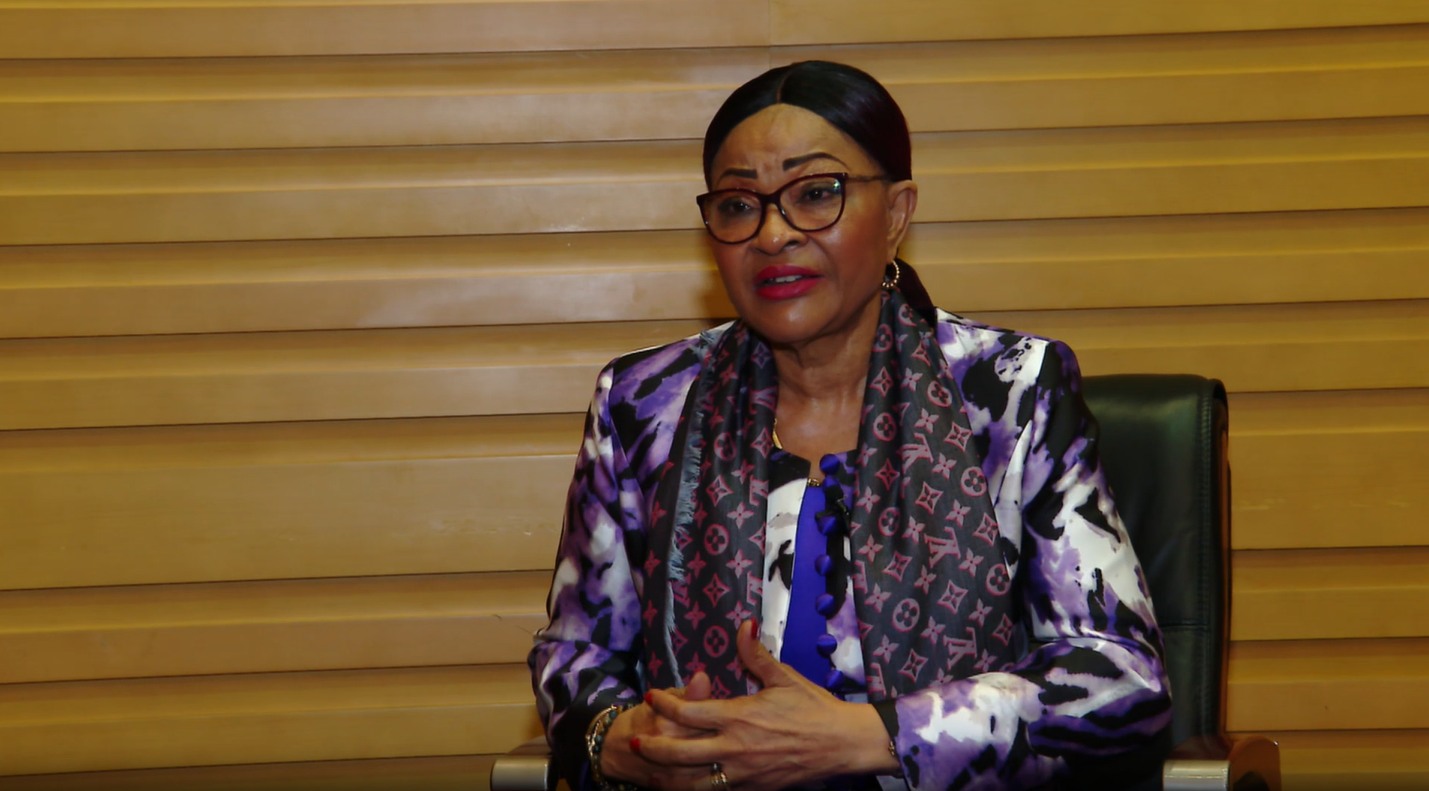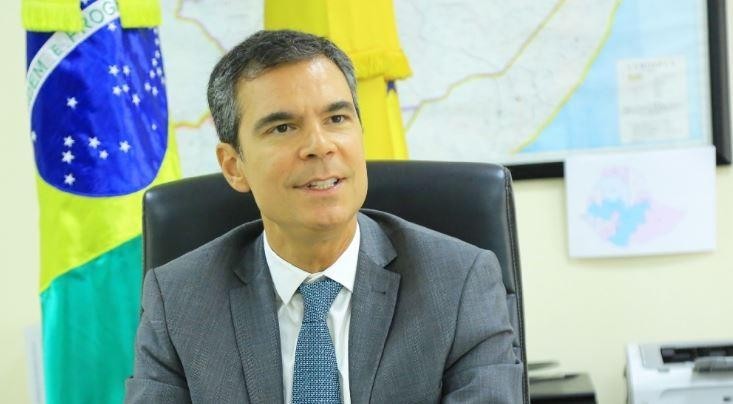Ethiopia, Egypt & Sudan Concluded First Round Tripartite Negotiation on GERD

According to the ENA’S report in on August 28/2023, the delegations from Ethiopia, Egypt and the Sudan completed the first round of the tripartite negotiation on the first filling and annual operation of the Grand Ethiopian Renaissance Dam (GERD). According to the ENA’s report mentioning the Ministry of Foreign Affairs of Ethiopia, the parties exchanged views to reach a win-win situation.

The delegations also agreed that Ethiopia will host the next round of negotiation in September 2023, in Addis Ababa. Mentioning the Ministry of Foreign Affairs of Ethiopia, ENA also reported that Ethiopia will endeavor to conclude the trilateral negotiation based on the principle of equitable and reasonable utilization while ensuring its rightful share of the Nile waters.
Ethiopia’s Green Legacy Initiative Model for Other African Countries

African Union Commissioner for Agriculture, Rural Development, Blue Economy and Sustainable Environment, Ambassador Josefa L. Sako commended the ongoing Green Legacy Initiative of Ethiopia as a model for other African countries.
Ambassador Josefa L. Sako appreciated the Green Legacy Initiative as a decisive measure to mitigate impacts of climate change.
The Green Legacy Initiative, Ethiopia self-reliant program that the country is implementing without any financial support from outside, manifests the government’s commitment to fight climate change, she explained.
She also stated that the initiative is instrumental in tackling drought and other natural disasters like landslide and flooding, and in line with AU’s Great Green Wall program.
The Commissioner further called on member countries to utilize the upcoming African Climate Summit to be held in Nairobi, Kenya as a platform to echo their voices and forge a common stand against climate change.
Planning, Development Minister of Ethiopia Confers with Representatives of KOICA And GGGI

The Minister of Planning and Development, Fitsum Asefa discussed with representatives of the Korea International Cooperation Agency (KOICA) and the Global Green Growth Institute (GGGI) on building climate resilience in Ethiopian cities through nature-based solutions in urban and peri- urban Areas. (https://www.fanabc.com, September 2, 2023)
Promoting urban green transformation and promoting climate change is the main objective of the project, and in the discussion, the project’s feasibility and implementation arrangements were examined from all sides and the project was conceptually developed.
KIM Ji-Hee, Director of Climate Change, HONG II-Pyo, Chief Consultant of the KOICA and SONG Feel-Geun, Representatives of the Global Green Growth Institute (GGGI) and Bethel Terefe, Program Advisor for KOICA Ethiopia office of present in the meeting.
The GGGI and KOICA representative stated that the project is in line with national development frameworks like the CRGE plan and Climate Resilient strategies for the sectors.
The representative state that they had made a fruitful discussion and the project objective is to catalyze urban green transformation and to enhance climate resilience of the three selected Ethiopian cities through the application of Nature based solutions (NBS) that address interconnected climate threats while also mitigating developmental threats related to unsustainable and unplanned Urbanization.
Fitsum Asefa, for her part, said that the Planning and Development Ministry has been implementing various climate change interventions to tackle the impacts of climate change and strengthened good practices and lessons on effective implementation adaptation and mitigation projects/programs nationally and the government of Ethiopia is more committed by doing different climate actions and measures to have environmental, social and economic sustainability.
The project will be focusing mainly on Urban resilient through Restoring the ecosystems, afforestation, reforestation and others related Nature based solution, it is stated.
Through effective implementation of nature-based solution, the project will have Environmental, Social and Economic benefits for the national contexts.
It has been suggested that the 6-year project will be implemented in Addis Ababa and Jimma.
Ethiopia’s Accession to BRICS Opens New Field of Cooperation

Fig 5: Ambassador of Brazil to Ethiopia
The Ambassador of Brazil to Ethiopia, Jandyr Ferreira dos Santos stated that Ethiopia’s Accession to BRICS opens a new and promising field of cooperation. (https://www.fanabc.com/September 2, 2023).
It is recalled that Ethiopia’s bid to join the emerging-markets bloc of Brazil, Russia, India, China and South Africa (BRICS) was endorsed at the 15th BRICS Summit in Johannesburg, South Africa. Ethiopia was one of the 6 countries that was allowed to join the bloc.
In an exclusive interview with ENA, Ambassador of Brazil to Ethiopia Jandyr Ferreira dos Santos said the BRICS mechanism possesses a series of interlinked initiatives, such as the New Development Bank, the BRICS Business Council, the BRICS Women’s Business Alliance, and many others.
It promotes exchanges in areas such as media, culture, education, sports, arts, youth, civil society, academia, science, technology & among others, according to the ambassador.
To this end, he said that Ethiopia’s accession to BRICS opens a new and promising field of cooperation.
“Ethiopia will now take stock of what has been accomplished by the BRICS in each of these areas and start contributing its own initiatives and perspectives. We look forward to working with Ethiopia in this regard,” the ambassador stated.
Moreover, the ambassador said Ethiopia’s accession will bolster the BRICS’s call for inclusive multilateralism, respect for international law, and reform of the multilateral political and financial institutions, where all of them are dear to the developing world, and have long been defended by both Brazil and Ethiopia as individual countries.
“I believe that the rising interest in the developing world about the BRICS, as evidenced by the large number of countries that approached us willing to join the group, demonstrate that there is a positive momentum in the defense of these causes within the broader international community,” he indicated.
As a member of the BRICS in the near future, Ethiopian views and expertise on many issues raised here will be shared within the group, Ambassador Santos pointed out.
This will strengthen both the BRICS and Ethiopia to open new avenues of cooperation as discussions unfold, he said, adding “I’m very optimistic about the future of South-South cooperation within the BRICS and about the bilateral Brazilian-Ethiopian relationship as a whole.”
Speaking on the bilateral relationship between the two countries, the ambassador said Ethiopia and Brazil have enjoyed friendly relations for over 70 years.
“We have a fluid bilateral dialogue on all major global and regional issues, with very important common positions, in particular on the need for the developing countries to play a more important role in the world arena,” ambassador elaborated. Trade and investment ties are growing where the daily flight of Ethiopian Airlines connects São Paulo with Addis Ababa, the ambassador said, adding there are many cooperation programs in place in areas of common interest, such as agriculture, in which Brazilian expertise can promote Ethiopian production.
He said “we are evaluating other possible partnerships such as in sports diplomacy, an area for example in which we in Brazil stand to learn from the remarkable Ethiopian successes in athletics.”
In a nutshell, there is a wide and growing agenda between the two countries for the common benefit of our peoples, he noted.
Ethiopia Captures 158 Human Traffickers, Brokers: MoWSA Minister

The Government of Ethiopia has apprehended 158 human traffickers and brokers during the past three months, Women and Social Affairs Minister Ergogie Tesfayedisclosed.
Speaking at the High-level Dialogue on Missing Migrants held at the AU, the minister stated that the criminals were captured in cooperation with Djibouti, Kenya, Somalia, and the Interpol.
Ethiopia is taking measures to minimize irregular migration and significant progress has been made in collaboration with partners and stakeholders, she added. Attributing the driving cause of irregular migration to economic reasons, the minister stressed that all should fight the cruel and offensive acts carried by human traffickers.
In this regard, Ethiopia is taking significant measures to tackle the challenges regarding irregular migrations in collaboration with different development partners and with other stakeholders including the IOM, ILO, and Freedom Fund, it was learned.
According to her, the government of Ethiopia gives due attention with committed political will to minimize the problem and the deputy prime minister is taking a lead on the national council for irregular migration.
Despite breaking scenarios that have been happening, Ethiopia has proved to be resolute in addressing the above challenges, the minister stated, adding that a case in point is the commitment of Ethiopia to the Global Compact for Migration, which promotes safe, orderly, and regular migration from its inception.
She revealed that Ethiopia remained instrumental in the ratification process of Global Compact for Migration (GCM) and was recently recognized as a champion country in East Africa, as called by ENA.
Since the adoption of the GCM, various practices and proclamations as well as declarations that are action-oriented have been developed and revised to respond to various challenges related to the migration phenomenon in Ethiopia.
“Efforts around mainstreaming GCM aspiration, are also underway under different industries and sectors,” Ergogie said.
The minister further stressed that it’s essential to link national efforts with continental and global agendas.
“Hence, I wish to take this opportunity to commend the African Union Commission and ACHPR for the adoption of a historic resolution 486 on the topic which provides key particular recommendations to member states. Ethiopia indeed recognized this important resolution and its recommendations.”
She also noted that Africa has been at the forefront when it comes to the issue of migration when it signed up to all the 23 GCM objectives of overcoming all aspects of migration.
“Migration is a natural process, and safer process must be facilitated to those who choose difficult route,” the Minister said.
strongly calling for enhanced regional coordination and vouched for African Solutions to African Problems to address the challenges of Missing Migrants.
Mr. Patrick Youssef, ICRC Africa Director, urged stakeholders to take immediate steps to review migration- related laws, regulations, policies, and practices to avoid their negatively impacting those seeking protection or safety, and to minimize the risks of family separation, and of persons going missing, or dying, International Committee of Red Cross delegation to the AU told FBC.
![]()